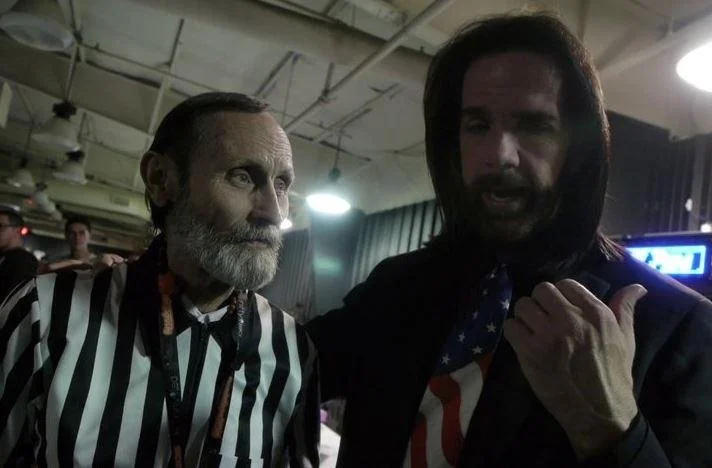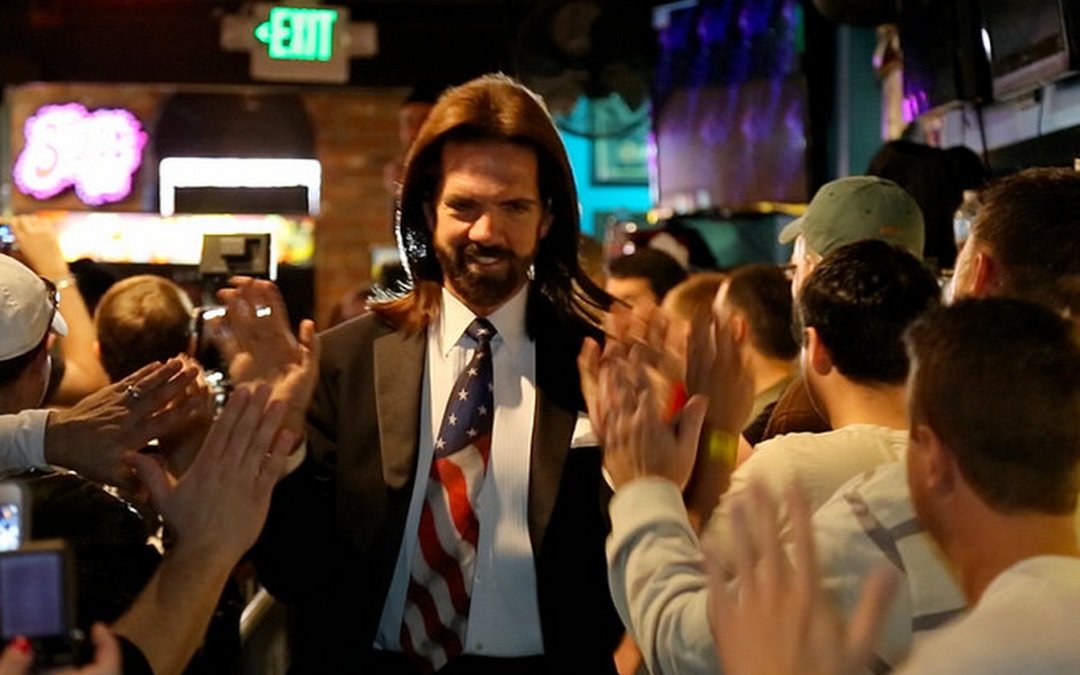In the world of classic arcade gaming, Billy Mitchell has become something of a myth. Known for his perfectly styled hair, signature American flag tie, and a long legacy of record-breaking performances, Mitchell has often stood as one of the most polarizing figures in gaming history. But Arcades & Love Songs: The Ballad of Walter Day, a new documentary exploring the life and influence of Twin Galaxies founder Walter Day, offers a rare and surprising portrait of Mitchell—one that strips away the controversy and gives viewers a more human, reflective version of the man behind the legend.
Rather than focusing on rivalries or controversies, the film centers on Day’s uniquely philosophical view of the world and his deep ties to the gaming community. In this setting, Mitchell appears not as a competitive antagonist but as a longtime friend and integral part of a shared history. His role in the film is one of reverence and reflection, contributing to a broader narrative about legacy, connection, and the evolution of an entire subculture.
Mitchell, often cast as the villain in previous documentaries—most notably in The King of Kong: A Fistful of Quarters—is instead portrayed here as a collaborator and confidant. The film avoids the simplistic binaries of hero and villain, allowing Mitchell’s complex presence in the gaming world to be understood in a new light. Rather than performing for the camera or defending his legacy, he simply exists within the world Day helped create, offering a more grounded, authentic contribution.
While Mitchell has occasionally embraced the “villain” persona that media and fans projected onto him, it’s clear that the role has its limits. The film hints at a quieter side—one that values legacy over theatrics, and friendship over spectacle. In recent years, Mitchell’s focus seems to have shifted from score-chasing to preservation, mentoring, and celebrating the culture that emerged from the arcade scene.
His relationship with Walter Day, a friendship spanning decades, is portrayed as foundational. The two have navigated the rise, fall, and rebirth of arcade culture together, with Day serving not just as a scorekeeper but as a kind of philosophical anchor in Mitchell’s journey. Their bond feels less like a rivalry and more like a brotherhood, built on mutual respect and a shared belief in the power of video games to connect people across time and space.
Mitchell’s presence in Arcades & Love Songs also reflects his personal evolution. Once defined solely by achievements and allegations, he now seems to recognize that his legacy includes much more: his influence on pop culture, his role in shaping competitive gaming, and his ongoing commitment to the community. The film gives space to that transformation, without sensationalism or spectacle.
Ultimately, Arcades & Love Songs doesn’t just reframe Walter Day—it reframes Billy Mitchell. It presents him not as a caricature or controversy magnet, but as a man who has grown alongside a culture he helped define. In doing so, the film opens the door for viewers to see him in a new way—one that emphasizes heart over headlines, and history over hearsay.
As the arcade world continues to evolve, Mitchell remains one of its most enduring symbols—not just of high scores, but of the passion, perseverance, and sometimes complicated humanity that comes with dedicating your life to something you love.
Jessie Hobson






